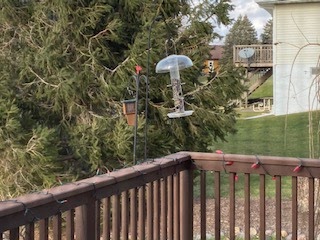What's in a name? "Dixie" proves problematic
 |
| On the left is me, Deirdre Cox, and it's the 1976 senior high school photo. At right is a young Dixie Cox, with my Auntie Lucille and mother, Barbara Cox. |
There is a place of higher learning in St. George, Utah called "Dixie State University." It was given the name in 1911 because former Confederate slave owners and slave drivers from the Deep South settled in this part of Utah in the late 1800's and grew cotton.
It seems Dixie State graduates in the 21st century are having trouble finding jobs after graduating from the university, partly on account of its name. The university's trustees have recently voted to study a name change but no timetable for change has been set.
I saw that news item in the New York Times and sighed.
My nickname is "Dixie" and I am 63 years old. My father, Emery Cox, gave me the nickname in 1957 after I was born. My given name is "Deirdre" and he was afraid I'd grow up and people would call me "DeeDee" or some such. That potential nickname had many negatives to my Dad.
A native of Virginia, Dad thought of the moniker from the song, "Dixie," which is familiar to many Southerners. Some lyrics: "Way down South in the land of cotton ..." The song was composed in 1850 by Daniel Decatur Emmett as a minstrel tune. It was one way to make slavery seem a more positive institution to the growing abolitionist movement.
In addition, I was the only Cox child born in the North, in Minneapolis. So the nickname was chosen with apparently no complaints from my mother (an English major) who loved the story in Gaelic literature, "Deirdre and the Sons of Usnech."
I have lived with this nickname my whole life but it is evolving into a problem.
Women named "Karen" may understand this. That name was very popular in babies in 1965, but has lost popularity, partly because it's now a meme, and a pejorative term for a white woman who is demanding and entitled, beyond what is considered normal.
I got wind of important negative Dixie connotations when I was a daily newspaper reporter. I was doing research for a major story when I contacted the Southern Poverty Law Center in Montgomery, Ala. This non-profit agency specializes in civil rights and is known for legal cases against white supremacist organizations. For example, in 1980 the group became known for filing civil suits for monetary damages for victims of violence by groups such as the Ku Klux Klan.
I let my nickname be known during a conversation with the media contact. She was diplomatic but said the name "Dixie" did carry negative connotations in the South.
My parents would not have been too aware of this in the 1950s. They were consumed with trying to raise and feed five children and while civil rights was a concern, it was not top-of-the-agenda. They had a little baby and a new mouth to feed in addition to four other children. The naming process was done and it seemed to fit for a good long time.
When I was in school I used my name on standardized tests, and when I graduated from Tipton, Iowa, High School in 1976 the name on my diploma was Deirdre Cox. I was Deirdre to most people I knew while in college at Iowa State University in Ames, and I used the name professionally as a newspaper journalist.
These days it's Deirdre Cox Baker on Facebook, and @deirdrecoxbaker on Twitter. You see Deirdre on this blog and on the other one (gardensirencall@blogspot.com) At Starbucks or other name-first establishments I just say "Dee," but then have to watch when my order comes up. (Three names is ridiculous!).
This isn't something that keeps me awake at night. But it's a little weird to have a life-long name that elicits negative connotations during these partisan times.
Many who know me realize that I carry two names, a long one that is pretty, but hard to spell and say correctly. The shorter nickname is simple to say and spell.
Most shorten the nickname yet again to "Dix." That is a fine alternative.



Comments
Post a Comment